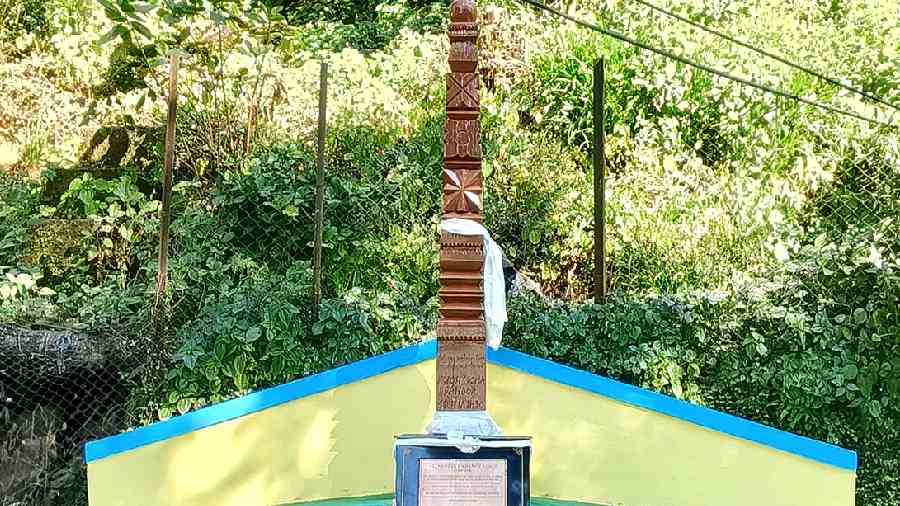A totem pole erected by the Hungarian National Assembly in Darjeeling to strengthen ties between acclaimed philologist and Orientalist Alexander Csoma de Koros’s places of birth and death was reinstalled after renovation by the Rotary Club of Darjeeling on Wednesday.
Csoma de Koros, born in 1784 in Kovaszna (Transylvania, Romania), breathed his last in Darjeeling in 1842.
A decade ago, the mayor of Kovaszna donated the pole to the Hungarian government to be installed here in Darjeeling. It was inaugurated in Darjeeling by Laszlo Kover, the Speaker of the Hungarian National Assembly, along with Janos Terenyi, Hungarian ambassador to India, on November 25, 2012.
The six-foot-tall wooden totem pole on Darjeeling’s famous Mall Road was to be maintained by Darjeeling municipality. Residents, however, say it was ill-maintained for years.
“We decided to take up the project to put an end to further embarrassment. Last year, when a Hungarian delegation came to town to pay their respects to Csoma’s grave, we met Mariann Erdo of the Hungarian Cultural Centre and proposed to take up restoration and maintenance of this historic gift to our town,” said Sunirmal Chakravarthi, president of the Rotary Club of Darjeeling.
Csoma de Koros’s tomb is on 18 Lebong Cart Road in Darjeeling and has been declared “a monument of national importance” by the Archeological Survey of India.
“We are also grateful to the Darjeeling municipality that granted us permission to renovate and maintain the pole from now,” said Rotarian Tashi Pencho.
When the pole was erected there were talks to declare both the places “twin cities” and start an exchange programme between Darjeeling and Hungary.
“However, our administrators over the years could not even maintain such an important gift,” said a local resident.
Csoma de Koros, who set out for the East in search of the origins of Hungarian people, arrived in Ladakh in 1820. In Ladakh, he studied Tibetan and read two great encyclopedias on Buddhist literature, the Kahgyur (100 volumes) and the Bstangyur (225 volumes), which contain translations of Buddhist books that were taken to Tibet from India.
The scholar is considered to be the first to compile the English-Tibetan dictionary, published in 1824. He shifted to Calcutta in 1831 and wrote a book on Tibetan grammar and compiled a dictionary in the language.
He also catalogued Tibetan works in the library of the Royal Asiatic Society of Bengal in Calcutta.











